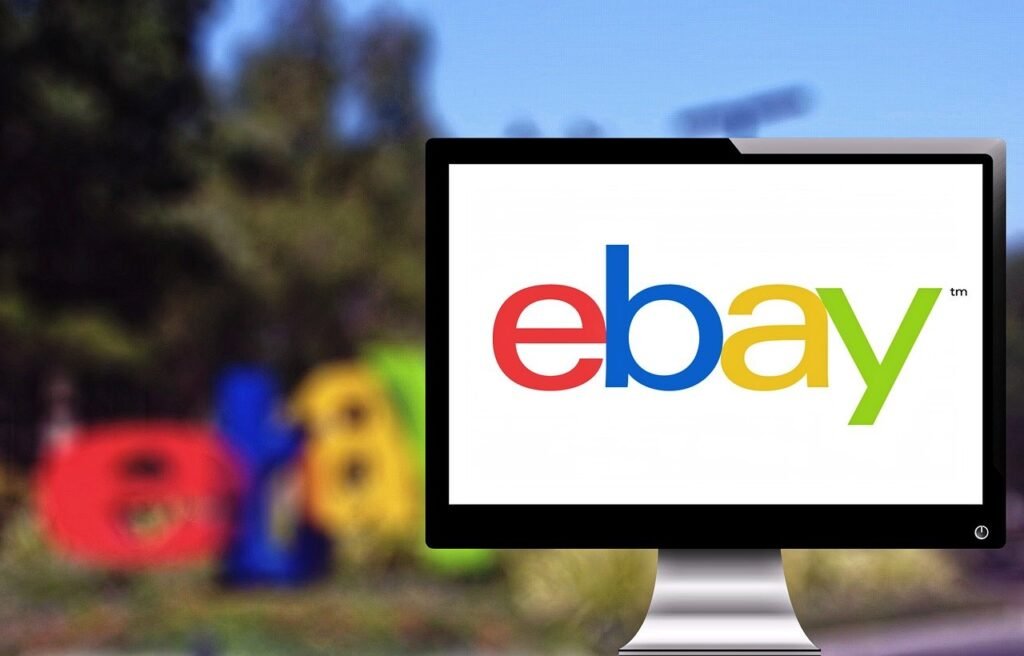
Attention eBay Sellers in Europe Big Changes Are Coming Your Way
Table of Contents
Introduction
The multinational e-commerce company eBay has updated its regulatory policy, which will affect sellers in different countries. eBay has implemented a regulatory operating fee in response to PayPal’s amendment of its legal terms to control the growing intricacy and expenses related to its marketplace. This guide seeks to make these changes easier for regular users to understand.
eBay’s Policy Change: What Sellers Need to Know
eBay’s policy change represents a major change in the way sellers conduct business. The platform has implemented a fixed regulatory operating fee that impacts transactions in multiple European nations.
The Reason Behind the Change
eBay is demonstrating its commitment to abiding by the law and satisfying customers by imposing this fee to comply with environmental and sales regulations. This demonstrates their commitment to upholding the law, earning the trust of their clients, and being environmentally conscious. It also demonstrates how proactive they are in fulfilling their duties, putting the needs of their clients and environmental stewardship first.
Fee Implementation Date
With the regulatory operating fee going into effect on April 8, 2024, eBay transactions will reach a major turning point. This marks the beginning of a new era for the platform, one that places a greater emphasis on accountability, transparency, and regulatory adherence. eBay is demonstrating a shift towards a more responsible and customer-centric marketplace by improving the user experience through its proactive approach to regulatory compliance.
How the Fee Works: A Closer Look?
Sellers must comprehend the new fee structure to modify their pricing strategies appropriately.
Fee Calculation Method
The fee calculation method includes the item price, postage, taxes, and other fees in the total sale amount, applying a fixed 0.35% rate. This guarantees justice and openness and aids in sellers’ accurate understanding of their fees. eBay hopes to improve the selling experience for users by streamlining fee calculations and incorporating all transaction components. With the regulatory operating fee going into effect on April 8, 2024, eBay transactions will reach a major turning point. This marks the beginning of a new era for the platform, one that places a greater emphasis on accountability, transparency, and regulatory adherence. eBay is demonstrating a shift towards a more responsible and customer-centric marketplace by improving the user experience through its proactive approach to regulatory compliance.
Fee Application Scope
Transactions made in the UK, Austria, Belgium, France, Italy, Ireland, the Netherlands, Poland, Spain, and Switzerland are among the European nations where this fee is applicable. Sellers conducting business in these areas will have to pay the regulatory operating charge when doing transactions on eBay. For sellers participating in cross-border transactions inside these nations, this standard application promotes fairness and clarity by ensuring uniformity across various markets.
The Impact on Sellers: A Practical Overview
eBay sellers should understand how this fee may impact their listings and total expenses.
Inclusion in Final Value Fees:
Different from eBay’s final value fees, the regulatory operation fee is an additional expense that sellers need to factor into their transactions. This regulatory fee applies independently and is based on a fixed percentage rate of 0.35% of the total selling amount, in contrast to final value fees, which are normally a proportion of the item’s sale price. Sellers need to know that this fee is paid in addition to any current closing value fees and other expenses associated with selling. Sellers who understand this distinction are better able to determine their overall expenses and decide on pricing strategies and profitability on the eBay platform.
Effect on International Sales:
Sellers must carefully assess how the regulatory operating fee will affect their foreign sales, particularly if they are working with the aforementioned nations. Sellers who engage in cross-border sales with customers from the United Kingdom, Austria, Belgium, France, Italy, Ireland, the Netherlands, Poland, Spain, and Switzerland will be responsible for this additional cost because the fee is only applicable to transactions conducted within these specific European countries. This is especially important for sellers that ship internationally regularly because the regulatory cost can impact their pricing, profit margins, and ability to compete in the global market as a whole. Sellers may effectively navigate the changing landscape of cross-border e-commerce and adjust their business plans by taking into account the impact of this levy on foreign sales.
Comparing Fees Across Markets
Markets may react to this shift in different ways. A table that contrasts the static percentage rate for every market can provide a useful viewpoint.
Country | Regulatory Operating Fee |
UK | 0.35% |
Austria | 0.35% |
Belgium | 0.35% |
France | 0.35% |
Italy | 0.35% |
Ireland | 0.35% |
Netherlands | 0.35% |
Poland | 0.35% |
Spain | 0.35% |
Switzerland | 0.35% |
Seller Adaptation: Steps to Take
eBay sellers can effectively adapt to this new fee policy in a few ways.
Adjusting Pricing Structures:
Sellers should review their pricing strategies in light of the new regulatory operating fee to account for this extra expense. To maintain sustainable profit margins and competitiveness in the market, this may entail recalculating item prices and delivery expenses. Sellers can limit any potential impact on sales volume and preserve openness with customers by factoring in the fee into price selections. Achieving a balance between meeting costs and attracting customers is crucial for maximizing profits and preserving a satisfying eBay selling experience.
Updating Listings:
Sellers must update their eBay listings to reflect any price revisions resulting from the new regulatory operating charge to guarantee clarity and openness with prospective purchasers. This entails outlining any modifications to item prices, delivery charges, and total transaction costs in unambiguous terms. Sellers should minimize misunderstandings or disagreements with purchasers over pricing variations by giving precise and current information. Furthermore, rapidly updating listings builds confidence in the seller’s brand by showcasing professionalism and a dedication to client pleasure. To remain competitive in the ever-changing world of online commerce and to comply with eBay’s rules and regulations, sellers should regularly examine and update their listings.
Conclusion
One significant change that sellers need to adjust to is the implementation of eBay’s regulatory operating charge. Sellers on eBay can maintain their success in the marketplace by being aware of the fee’s structure, how it affects sales, and how to adjust proactively. The eBay community may easily adjust to these changes if they communicate clearly and take a calculated approach.
FAQS
The fee was introduced to cover costs associated with legal compliance and customer protection measures.
The regulatory operating fee will be considered during refunds and fee credits, following eBay’s standard practices.
The fee will be included in your eBay invoice following its implementation on 8 April 2024.
Currently, eBay has not mentioned a cap on the regulatory operating fee.
The fee will still apply as it is dependent on the buyer’s location, not the listing site.
Share:



